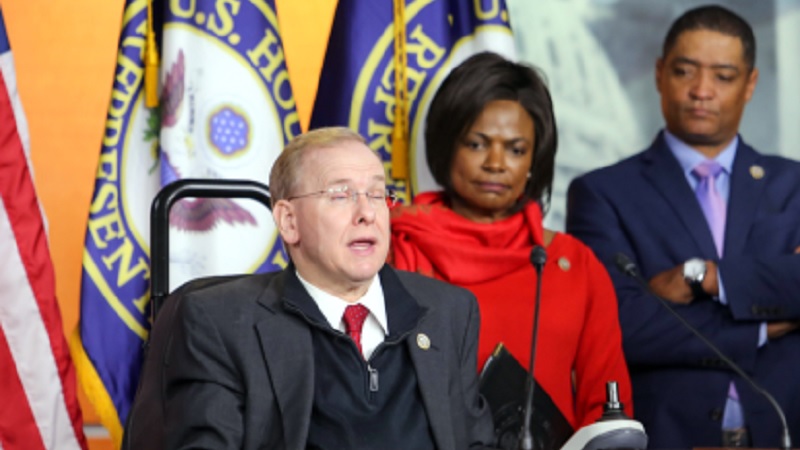
Rep. Jim Langevin, D-R.I., announced Tuesday he will not seek reelection in November, ending a 22-year career in Congress marked by groundbreaking work in cybersecurity policy.
Langevin has represented Rhode Island’s 2nd Congressional District since 2001, when he became the first quadriplegic to serve in Congress. During his tenure on the Hill, Langevin has been a strong advocate for people with disabilities, along with his cybersecurity profile.
On the latter front, Langevin co-chaired and established the House Cybersecurity Caucus. He is also a senior member of the House Armed Services Committee and chairs its Subcommittee on Cyber, Innovative Technologies, and Information Systems. Langevin is also a senior member of the Committee on Homeland Security.
Langevin has risen to be a national leader on cybersecurity issues, and during his time in Congress has worked to bring those issues to the forefront, including the successful push to create the position of National Cyber Director.
After a spate of high-profile attacks on the nation’s critical infrastructure in 2021, Langevin was one of the voices calling for improved security of critical systems and increased cybersecurity collaboration among the private and public sectors. Langevin, alongside Rep. Doris Matsui, D-Ca., pushed for more K-12 cybersecurity funding to help combat the rise of cyberattacks on schools. He also worked with Reps. Michael McCaul, R-Texas, Gregory Meeks, D-N.Y., Mike Gallagher, R-Wis., Adam Kinzinger, R-Ill., and Bill Keating, D-Mass., to reintroduce the bipartisan Cyber Diplomacy Act requiring the State Department to open the Bureau of International Cyberspace Policy.
Langevin was also instrumental in getting the Cybersecurity and Infrastructure Security Agency (CISA) greater legal authority for its mission. As a result, CISA now has the power to issue subpoenas to get information from internet service providers notifying potential victims of cyber threats.
He has also been a key member of the Cyberspace Solarium Commission, working with other cyber leaders to introduce and pass a host of legislative proposals through annual defense authorization legislation.
“I’m so proud of all we’ve accomplished together. I’ve led the efforts in Congress to strengthen our cybersecurity and prepare our Nation for the threats of the 21st century,” Langevin said in a video announcement on Twitter Tuesday.
“It has been an honor to serve alongside Jim in the United States House of Representatives for the past 11 years, where he has become one of our nation’s leaders in cybersecurity and expanding access to opportunities for career training and technical education,” said Rep. David N. Cicilline, D-R.I, in a statement.
“He has been a steady, pragmatic, and unifying voice during an era of increasing partisanship, someone who truly puts people over politics,” R.I. state Sen. Dominick J. Ruggerio said in a statement. “He has made a tremendous difference on issues such as rights for disabled Americans, cybersecurity, and support for our servicemen and women.”
McNerney Also Moving on
At the same time, Rep. Jerry McNerney, D-Calif., also announced he would not be seeking reelection in November.
“I am very proud of the many accomplishments that my staff and I have achieved in Congress, including … securing major investments in infrastructure and public safety, broadband, education, childcare, and health care access. I have always fought tirelessly for those in need, and I will continue to do so,” McNerney said on Twitter on Tuesday.
McNerney has also been a major player in several technology-related bills. In 2021 McNerney introduced the Consumer Safety Technology Act, which has been passed in the House. The bill would commission a study on blockchain technology and digital currency and how artificial intelligence can aid the Consumer Product Safety Commission.
That same year McNerney, alongside Rep. Bob Latta, R-Ohio, introduced legislation to improve the United States’ electric grid security. The Cyber Sense Act and the Enhancing Grid Security through Public-Private Partnerships Act both direct the Department of Energy (DoE) to work with electric utilities to improve security.
Langevin and McNerney are the latest House Democrats to announce they will not be running for reelection, bringing the number to 28. Fourteen House Republicans have announced they will not be running for reelection.
